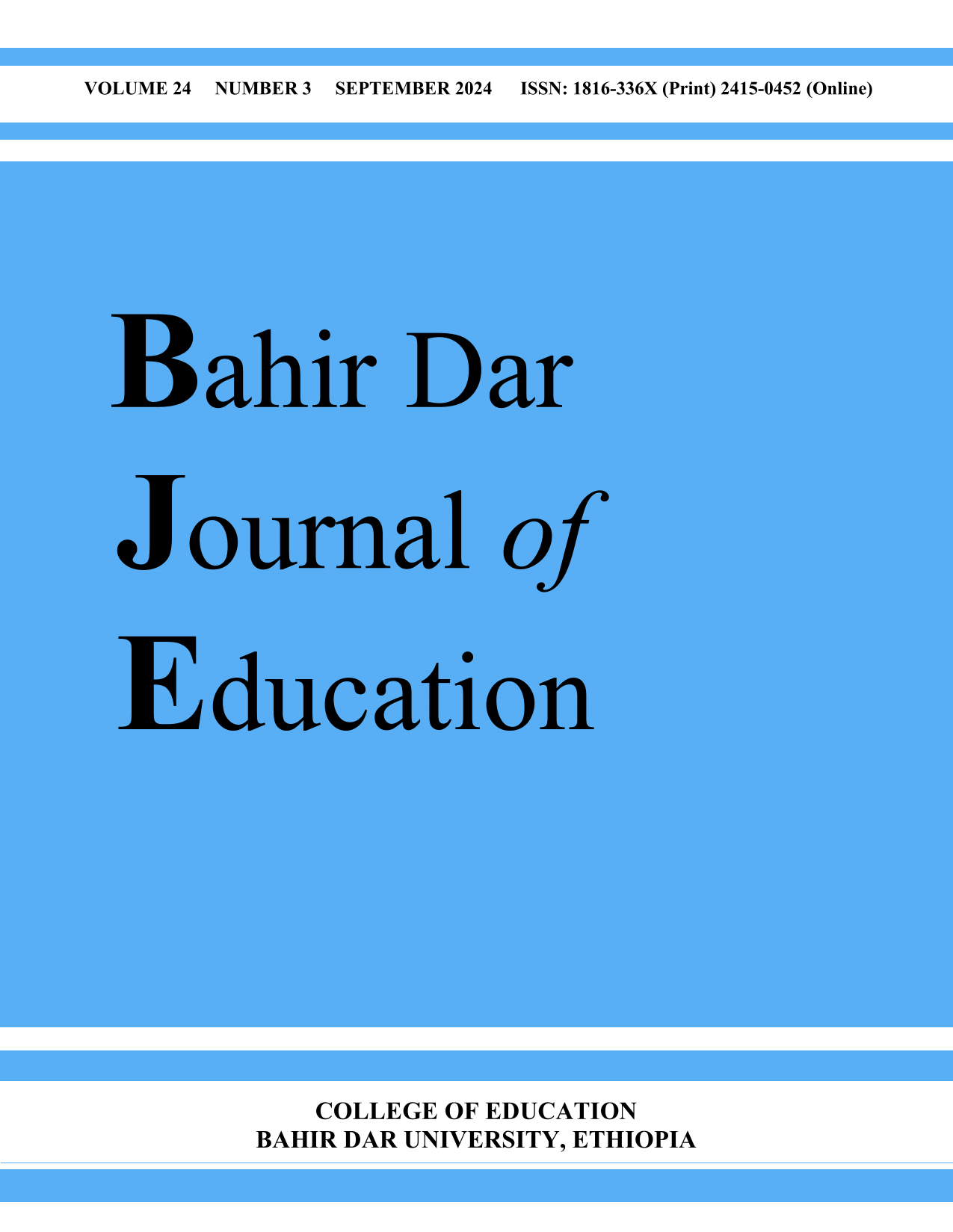Examining the practice of culturally responsive pedagogy in upper primary school mathematics: Perceptions and competencies of teachers in North Wollo zone, Ethiopia
Abstract
This study aimed to examine the status of culturally responsive pedagogy (CRP) practices among upper primary school mathematics teachers in North Wollo Zone, Ethiopia. To achieve this purpose, the researchers employed a mixed-methods convergent research design. The participants included teachers, students, principals, and department heads. Data were collected from these participants through questionnaires and interviews, and analyzed using both quantitative and qualitative techniques. Results indicated that teachers employed CRP strategies in mathematics instruction on an occasional basis. Furthermore, the results revealed significant correlations between the independent variables—school location, teaching experience, CRP perception, and CRP competency—and the practice of CRP. Notably, teaching experience and CRP competencies were found to positively and significantly predict the dependent variable of CRP practices in mathematics education. These findings underscore the need for teachers to gain teaching experience, enhance their cultural competence, and exchange insights on implementing responsive teaching methods that integrate cultural elements and real-life contexts.
Copyright (c) 2024 Bihonegn Ayalew, Alemayehu Bishaw Tamiru, Solomon Melese Mengistie

This work is licensed under a Creative Commons Attribution 4.0 International License.
Authors who publish with this journal agree to the following terms:
- Authors retain copyright and grant the journal right of first publication with the work simultaneously licensed under a Creative Commons Attribution License that allows others to share the work with an acknowledgement of the work's authorship and initial publication in this journal.
- Authors are able to enter into separate, additional contractual arrangements for the non-exclusive distribution of the journal's published version of the work (e.g., post it to an institutional repository or publish it in a book), with an acknowledgement of its initial publication in this journal.
- Authors are permitted and encouraged to post their work online (e.g., in institutional repositories or on their website) prior to and during the submission process, as it can lead to productive exchanges, as well as earlier and greater citation of published work (See The Effect of Open Access).

